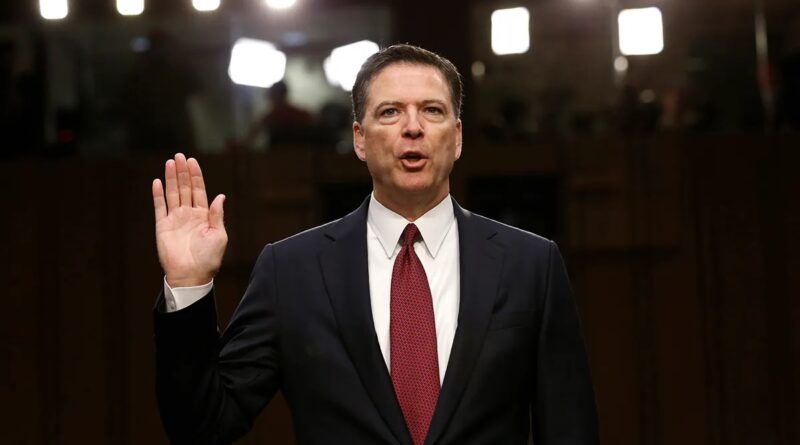James Comey Indicted in Virginia After Trump Pressure
News • Justice Department • Virginia
- Comey faces allegations related to his 2020 Senate testimony.
- The indictment comes after Trump publicly demanded prosecution.
- Critics warn it could signal increased politicization of federal prosecutions.
Federal Grand Jury Returns Charges
Former FBI Director James Comey has been indicted by a federal grand jury in Virginia on counts alleging he lied under oath and obstructed the legislative process. The charges specifically relate to his September 30, 2020 testimony, during which he denied authorizing subordinates to act as anonymous sources in media reports linked to the Hillary Clinton email investigation.
Consequently, if convicted on the primary counts, Comey could face up to five years in prison. However, federal sentencing guidelines typically result in lighter sentences than the statutory maximum.
Trump’s Public Pressure Precedes Indictment
The indictment followed intense public pressure from former President Donald Trump, who complained that the Justice Department was not taking action against Comey and other political opponents. Trump told Attorney General Pam Bondi that “nothing is being done” and labeled those critics “guilty as hell.”
After the charges became public, Trump celebrated online, declaring: “One of the worst human beings this country has ever endured is James Comey. At last, accountability begins.”
Meanwhile, Bondi, without directly mentioning Comey, wrote on X: “No one is above the law. This indictment shows our commitment to ensuring that public officials who abuse their authority are held accountable.”
New Interim Prosecutor Takes Lead
Following Siebert’s departure, Lindsey Halligan was appointed interim U.S. attorney for Virginia’s Eastern District. Halligan, who previously represented Trump in private legal matters, has no prior federal prosecutorial experience. Nevertheless, she advanced the indictment despite internal memos from career prosecutors advising against it due to insufficient probable cause.
Her appointment came shortly after Siebert declined to pursue charges against Comey and closed a separate investigation into alleged mortgage fraud by New York Attorney General Letitia James, citing lack of evidence. Notably, Trump reportedly expressed frustration with Siebert, stating, “I want him out.”
Comey Responds With Defiance
In response to the indictment, Comey posted a video message on Instagram rejecting the charges and expressing resolve. He encouraged the public to remain engaged rather than fearful.
“I am not afraid. Fear is the tool of a tyrant. We will not live on our knees,” Comey said. “My family has always known that challenging Donald Trump would come with consequences, but we refuse to back down.”
Additionally, Comey’s attorney, Patrick Fitzgerald, dismissed the indictment as baseless, stating: “Jim Comey completely denies these accusations. We are confident he will be cleared in court.”
Political Backlash Intensifies
The indictment immediately drew sharp criticism from Democrats. Sen. Mark Warner (D-VA) warned that replacing an independent U.S. attorney with a partisan loyalist risks turning the justice system into a political instrument.
“This kind of interference is a dangerous abuse of power,” Warner said. “By replacing a respected, independent prosecutor, Trump undermines the integrity of one of the nation’s most consequential U.S. Attorney’s offices.”
Next Steps in the Legal Process
Comey is scheduled to appear in U.S. District Court in Alexandria on October 9. The grand jury returned two counts of false statements and one count of obstruction, though it declined to indict on an additional false statement allegation because not all jurors agreed.
It is worth noting that the statute of limitations on the primary false-statement charge was set to expire soon, adding urgency to the case.
Implications for Justice and Politics
This case highlights ongoing concerns about potential political influence at the Department of Justice. As Trump campaigns for a second term, the outcome could have lasting legal and political consequences, shaping public confidence in federal institutions.





